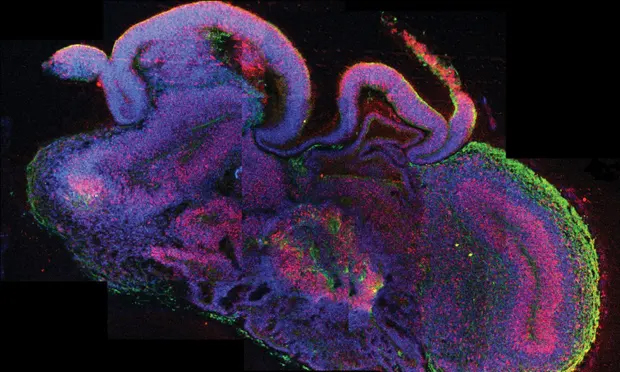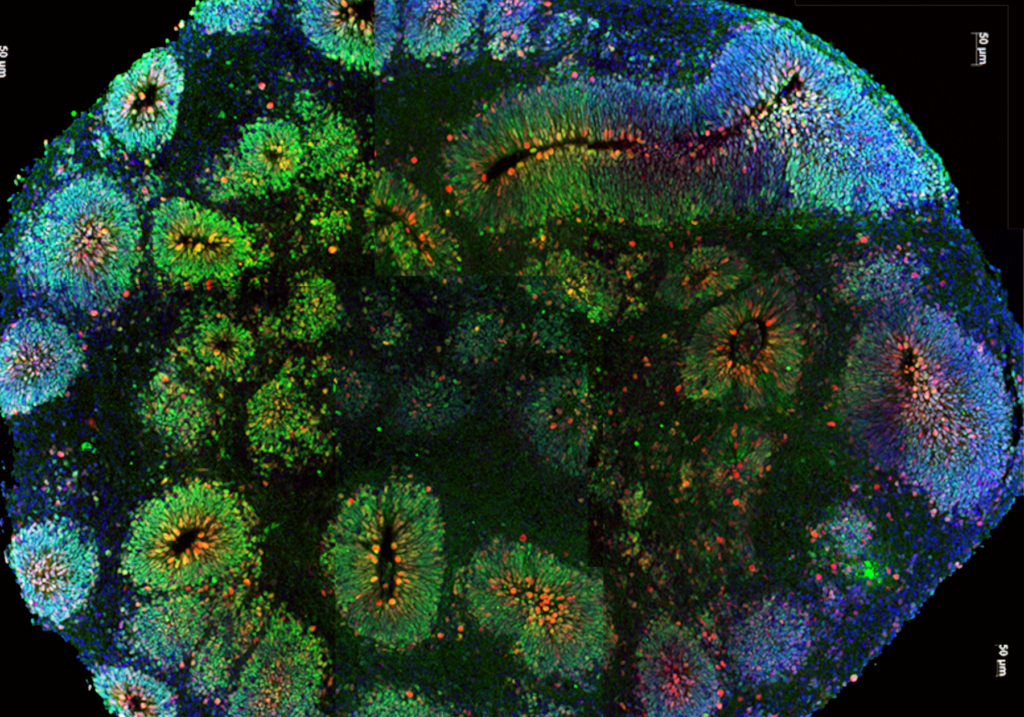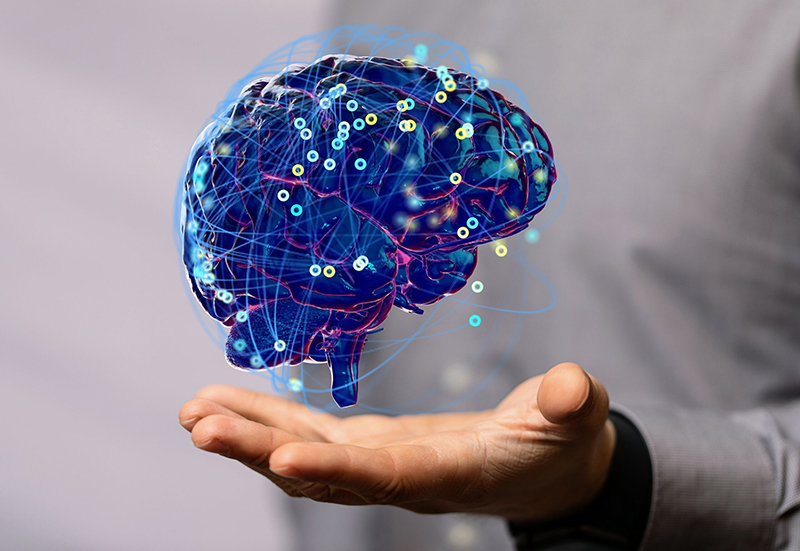In a groundbreaking new paper published on Monday, a team of Maryland-based scientists unveiled their ambitious plans to create sophisticated “biocomputers” using lab-grown, human “pseudo brains” instead of traditional silicon chips. The researchers argue that, despite significant advances in computing technology, the human brain still outperforms machines in several key areas, including image processing and energy efficiency. To capitalize on this natural advantage, they propose using miniature, simplified human brain organoids, or “pseudo brains,” to power the next generation of biocomputers.
The ultimate goal of this groundbreaking research is to create a highly efficient computing system capable of solving complex problems that conventional digital computers are either unable to tackle or will soon max out in terms of processing capacity and energy demands. However, the use of lab-grown “pseudo brains” or organoids raises serious ethical concerns, particularly if these systems undergo significant processing upgrades and possibly develop cognitive capabilities. Nevertheless, the scientists behind this project have committed to ongoing feedback and review as they push the boundaries of what is possible in the field of biocomputing.

A new study published in the journal Frontiers in Science by researchers from Johns Hopkins University, the University of California, San Diego, and other academic institutions, is suggesting that biocomputing with lab-grown, human pseudo brains could revolutionize computing. The study titled “Organoid intelligence (OI): the new frontier in biocomputing and intelligence-in-a-dish,” notes that the human brain is slower than machines at processing simple information, but is far superior in handling complex information with few and/or uncertain data. The paper emphasizes the brain’s remarkable storage capacity, estimated at 2,500 TB, based on its 86–100 billion neurons with over 10^15 connections. With the hope of surpassing the processing capacity limits and energy demands of traditional digital computers, the researchers are exploring the use of “brain organoids” or miniaturized human pseudo brains in biocomputing. However, there are already ethical concerns about the use of these organoids, which the researchers plan to address as their capabilities evolve.
According to a recent study published in the journal Frontiers in Science, scientists are exploring the potential of using biological learning for sophisticated computing. The study suggests that biological learning has an edge over AI algorithms, as it requires only about 10 training samples to solve problems, as opposed to the millions needed by AI. Moreover, it consumes far less power in computation.
Inspired by these advantages, researchers from Johns Hopkins University, the University of California, San Diego, and other academic institutions are advocating for “biological, brain-directed computing” as a substitute for silicon-based computing. They believe that this approach could lead to remarkable improvements in computing speed, processing power, data efficiency, and storage capacity while reducing energy consumption.

The paper describes how biocomputers could replace computer chips, which depend on rare earth minerals and have a hostile supply chain. Instead, biocomputers would rely on the “self-assembled machinery of 3D human brain cell cultures,” or brain organoids, to memorize and compute inputs. This breakthrough could have far-reaching implications, including stimulating drug development and other interventions and aiding the development of new brain-computer interface technology.
Biocomputers would rely on the ‘self-assembled’ machinery of 3D human brain cell cultures
In order to create the human pseudo brains, embryonic stem cells or induced pluripotent stem cells from skin samples are utilized, according to a group of scientists from Maryland and California. The paper highlights the success of the Johns Hopkins Center for Alternatives to Animal Testing in producing standardized and scalable brain organoids with diameters below 500 μm, comprising fewer than 100,000 cells. Each organoid is roughly 800 MB in memory storage, making it about one 3-millionth the size of the human brain. These “biocomputers” are expected to offer many benefits over silicon-based computing, especially in energy efficiency and processing power.
Another study published in the journal Neuron last October detailed the growth of a pseudo brain by a team of researchers using a collection of 800,000 human brain cells. The potential uses for these advanced biocomputers include stimulating drug development and aiding the development of new brain-computer-interface technology, according to the scientists.
According to a report by BBC News, a team led by Dr. Brett Kagan at Cortical Labs connected the human pseudo brain to a video game using electrodes to determine the position of the ball relative to the paddle. The brain was able to learn how to play the game within just five minutes and achieved a success rate significantly higher than random chance.
The scientists aim to achieve the vision of a multidisciplinary field of organoid intelligence (OI) by scaling up current brain organoids into “complex, durable 3D structures enriched with cells and genes associated with learning”. These organoids will be connected to next-generation input and output devices, as well as AI and machine learning systems. However, the researchers recognize the challenge of making the organoids even more brain-like than the Pong-playing pseudo brains at Cortical Labs to achieve organoid intelligence.
To achieve sophisticated computations with organoid intelligence, the pseudo brains must be scaled up from tens of thousands of cells to tens of millions of cells.
The scientists aim to create artificial blood vessels using microfluidic systems to nourish the pseudo brains and facilitate communication via chemical signals in OI technology.
However, the researchers acknowledge the ethical dilemmas posed by the development of a human pseudo brain capable of learning, remembering, and interacting with its environment. They raise concerns about the possibility of rudimentary consciousness, experience of pain or suffering, and the rights of individuals whose cells are used to create brain organoids.

The question remains: Will these brain organoids one day rise up against their creators and take over the world? Okay, probably not. But the potential ethical implications of creating miniature brains that can learn, remember, and interact with their environment cannot be overlooked.
The researchers seem to have their heads screwed on straight, recognizing that the issue of consciousness is a complex one. But if these pseudo brains start exhibiting signs of sentience, we may have to re-evaluate our relationship with them. Do we treat them like any other lab-grown tissue, or do they deserve some sort of special consideration?
Luckily, the scientists behind this research aren’t just focused on the science; they’re also taking ethics seriously. By embedding ethicists into their research teams, they hope to address any ethical issues that may arise in the course of their work.
In the end, only time will tell where this new frontier in biocomputing will lead. But one thing’s for sure: it’s going to be one wild ride.



